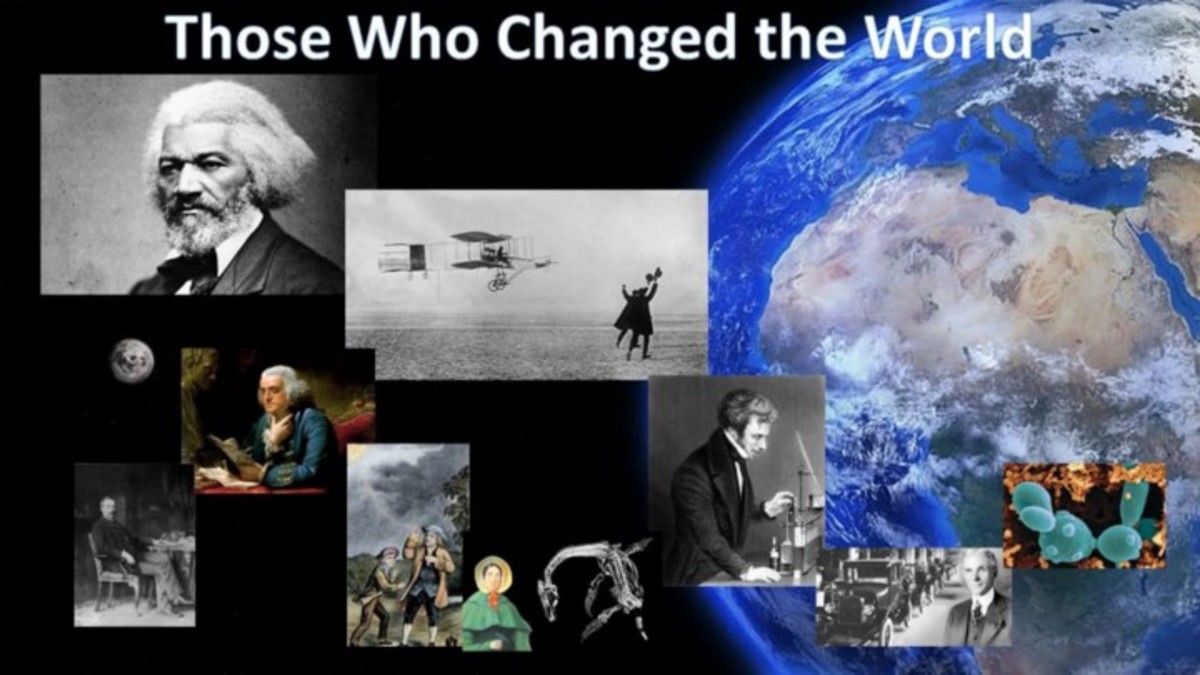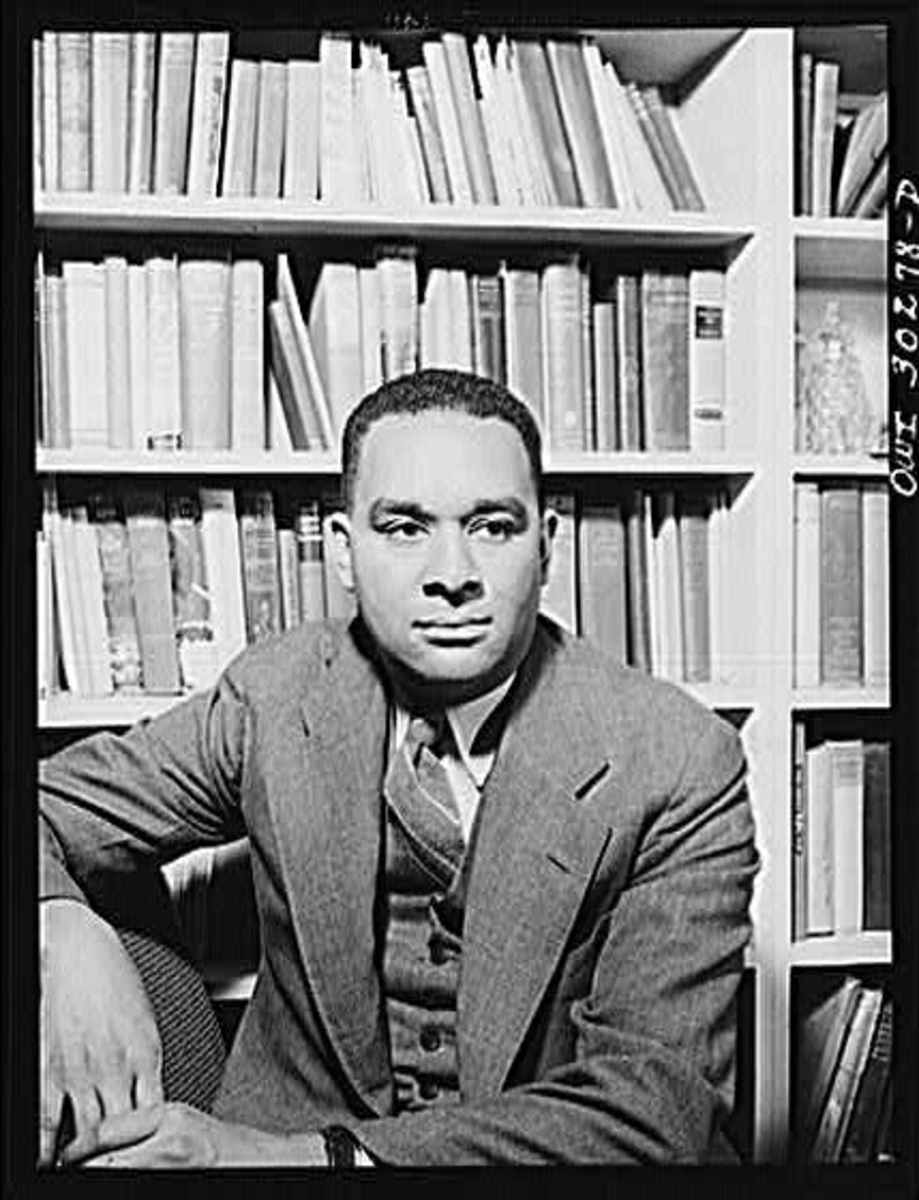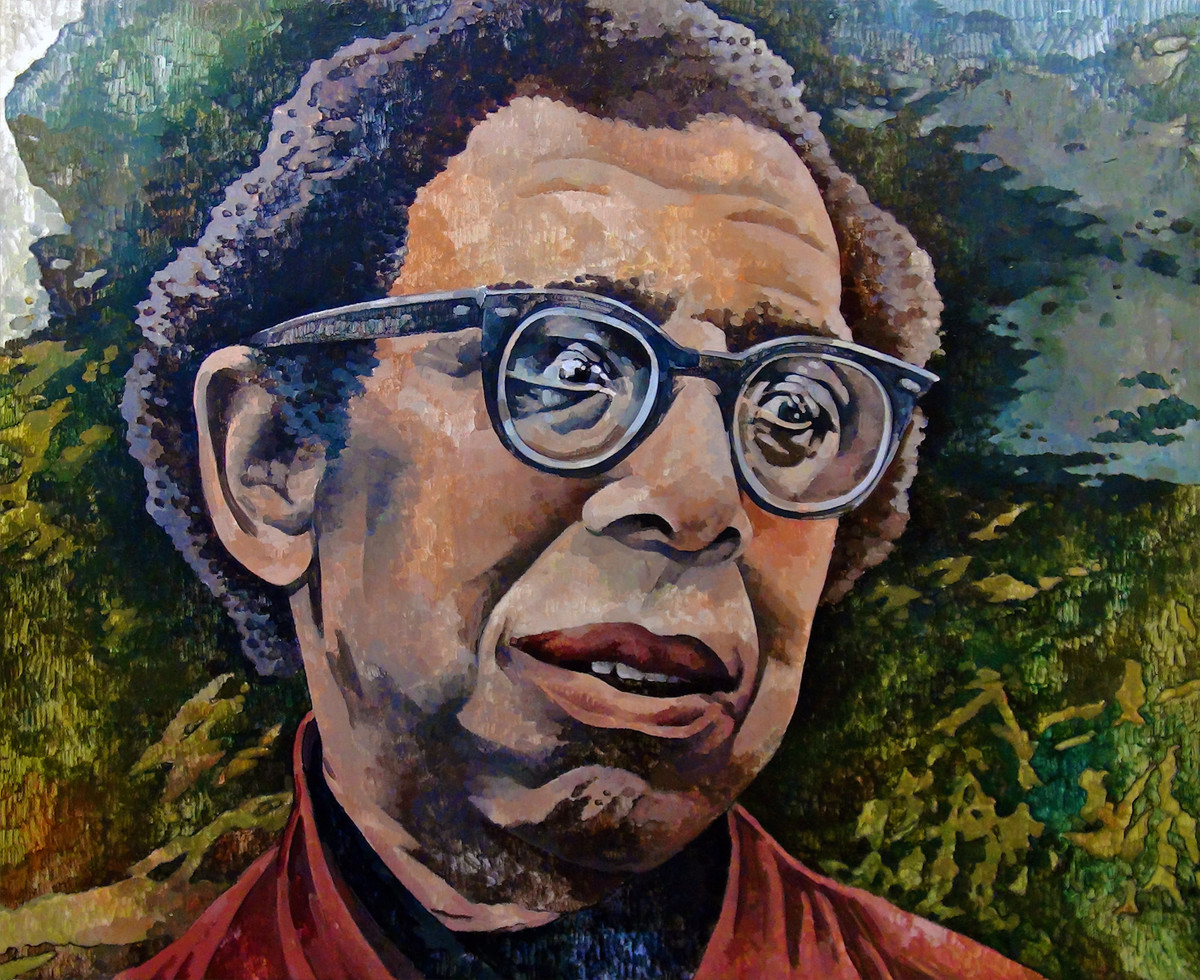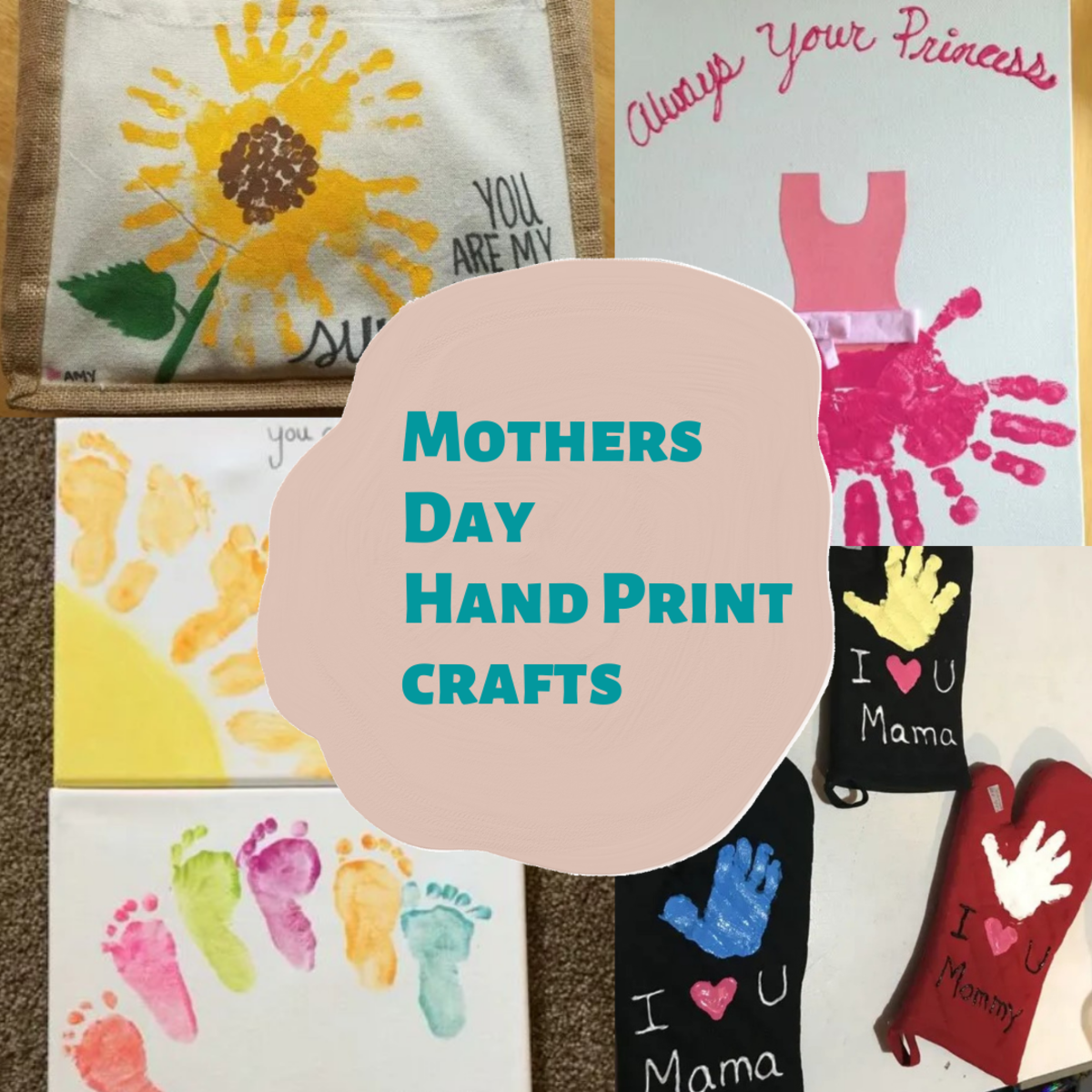10 Books That Changed America

10 Books That Caused Radical Change in America
There are books that are revered because of their effect on art, and there are books that are remarkable because they literally change the very society from which they came. Here is a list of ten books that radically changed or shaped American society. I've excluded all religious texts because those are just too obvious. These aren't all great books - because unfortunately not every influential book was a positive one by any stretch of the imagination. A lot of people have a lot of different opinions on this one, so have a good read or take a look at this book about the 13 most influential books in America. So without further delay, here's the list of the top 10 books to change America!
Leaves of Grass from Amazon
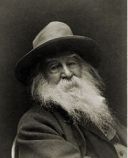
Leaves of Grass by Walt Whitman
This book changed the topics open to art and writing, and was stylistically way ahead of its time.
#10 "Leaves of Grass" by Walt Whitman
Walt Whitman's 1855 book of poetry ushered in the American equivalent of the British Romantic Era of literature. The sensual and the bawdy became open areas of discussion, a difference between sensual and sexual was noted, and these all become topics that art was now allowed to openly discuss.
Whitman's brilliant work changed art, and changed what could be discussed in art with his bold and bawdy epic poem. Leaves of Grass is celebrated for being both subversive and celebratory, a work that opened the door for discussion of many issues.
This was also an incredibly influential work to American literature in general, and was very much the work that clearly opened the path for the Beat movement of literature that followed nearly a century later.
Without Whitman, writers such as Kerouac, Burroughs, Ginsberg, and the others of the beat generation would have been hard pressed to find their voice without Whitman's early influence.
The Clansman by Thomas Dixon Jr.
Disgraceful, but unfortunately very influential to hate groups even today
#9 "The Clansman" by Thomas Dixon Jr.
This book shows that as writing can be used for great good to help society, writing can also be used for great evil to the detriment and harm of society.
Unfortunately, not every book has a good influence on society. This 1905 book made the KKK out to be heroes, and lead to a disgraceful anti-black film that was quoted by then President Woodrow Wilson as being, "Sad because it's true."
This was the racist answer to "Uncle Tom's Cabin," and this book was a best seller that eventually led to support for the Jim Crow laws, as well as influence of the other all time white supremacy, racist "classic," "The Birth of a Nation." Sad and sick, but influential all the same.
Grapes of Wrath from Amazon
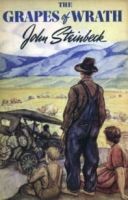
"The Grapes of Wrath" by John Steinbeck
This Pulitzer Prize winning Steinbeck novel led to several laws being passed to protect poor and migrant Americans
#8 "The Grapes of Wrath" by John Steinbeck
The Grapes of Wrath is perhaps the most famous and celebrated of John Steinbeck's novels. This novel, which won the 1939 Pulitzer Prize for fiction, was a stunning and powerful novel.
This fictional book was based on the real life plight of the poor Southwestern farmers ("Okies") who went into California looking for work, and ended up in slave like conditions that often lead to blatant exploitation and tragedy.
This book was extremely controversial, and hated in California, but invoked such an outrage that Congress actually passed legislation to help the migrants and their families. This never would have happened without Steinbeck's fantstic novel, which remains a classic to this day.
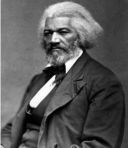
The Narrative of the Life of Frederick Douglass, an American Slave, by Frederick Douglass
Maybe the most influential autobiography ever written
#7 "The Narrative of the Life of Frederick Douglass, an American Slave" by Frederick Douglass
Frederick Douglass's autobiography was printed in 1845 and was a work that really opened people's eyes not only because of the intriguing title, but because Douglass's exceptional prose, poetic fables, and great writing skill showed what a former slave could aspire to.
With this beautiful writing, others realized that the point of view Douglass has was valid, and the fable referring to slavery was too hard to miss. This opened the way for Harriet Beecher Stowe's famous novel Uncle Tom's Cabin, which helped to spark the American Civil War.
Perhaps most importantly above the rest, is that the beauty and mastery of the English language as it was used by Frederick Douglass destroyed any myths that free blacks could not create art equal to, or greater than, any man or woman of any other race.
Silent Spring from Amazon
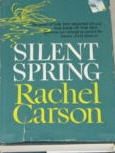
Silent Spring by Rachel Carson
The book that ended DDT use and founded the modern conservation movement
#6 "Silent Spring" by Rachel Carson
This simple yet powerful book caught the attention of millions of Americans who were horrified not only at the enviornmental damage being done by pesticides, but at the corruption of pesticide companies and politicians who kept critical information from the public.
This book became a proverbial "lone cry from the desert" that spoke out against the loss of our environmental treasures that finally forced Congress to listen and spawned the modern environmental movement. It was also a strong transition for Rachel Carson, who was known as a natural historian, but not as a social critic, before this book.
This book caused DDT to be made illegal, and helped save the Bald Eagle, among hundreds and hundreds of other animals. Carson made it clear that with this book she was not advocating complete ban of helpful pesticides, but was instead wanted to encourage responsible use coupled with awareness of the chemicals' impact on the entire environmental ecosystem.
Richard Wright Novels from Amazon
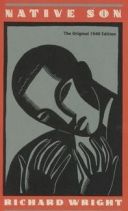
Native Son by Richard Wright
The Book that shocked a nation and reminds us today that Richard Wright's voice preceded James Baldwin
#5 "Native Son" by Richard Wright
This novel by Richard Wright was incredible, and shocked the entire nation by making a seemingly vicious black man (and a murderer) a hero, or at least an anti-hero. Bigger Thomas was the epitome of an angry black man, pushed too far not only by a society that hated him because of the color of the skin, but by the self-loathing he felt as a result and by even the white Socialists who thought they understood, but did not.
This violent and startling story brought to attention the savage inequalities and racism in America, and helped lay part of the foundation for the Civil Rights Movement.
My first reading of this book amazed me and terrified me. Wright's ability to capture the inner rage of the black man in a society so racially bigoted and stacked against him is an incredible wake up call, and still relevant today.
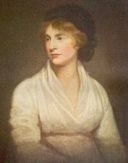
A Vindication of the Rights of Women by Mary Wollstonecraft
The earliest manifesto for women's rights, and the bedrock for all parts of the feminist movement
#4 "A Vindication of the Rights of Women" by Mary Wollstonecraft
This 1792 work was a passionate manifesto, and this work's effect caused Wollstonecraft to be considered the mother of modern feminism.
This was the first major literary assertion of women's rights, and started the ball rolling on every major breakthrough to follow. Her strong, passionate, and intelligent arguments would insure that the women's rights movement would survive for decades to come.
As a bit of trivia, this is also the author whom horror writer Mary Shelly (author of Frankenstein) was named after.
American History from Amazon
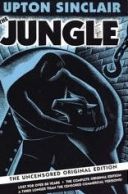
The Jungle by Upton Sinclair
Thought by many to be the single most influential American work of the 20th century.
#3 "The Jungle" by Upton Sinclair
This famous/infamous novel was meant to be about not only the meat packing plant, but also about the terrible conditions of poverty that immigrants and low wage workers dealt with in the cities.
This novel shocked the nation, and the understanding that humans who fell in the vat simply ended up in hot dogs . . . well apparently that's more important than poverty. Nonetheless, this caused several acts to be passed by Congress in dealing with both employment laws and with meat packing and food and safety standards.
Many of these laws are still in effect even today, and you can be assured of the safety of your meat because of this book.
Ironically, Upton Sinclair was actually rather disappointed in how the book was perceived. He noted that it seemed a strange moral attitude where a poor immigrant falling to his death and being ground into meat did not galvanize the public at all...until they found out the meat wasn't thrown out and so their hot dogs could contain human meat.
This book remains Upton Sinclair's most widely known and influential classic novel.
Upton Sinclair on eBay
Sometimes you can even find some pretty decent first editions on here.
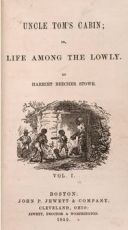
Uncle Tom's Cabin by Harriet Beecher Stowe
Despite the derogatory term that "Uncle Tom" now means, this book was ground breaking and in many ways is credited with helping to force the Civil War
#2 "Uncle Tom's Cabin" by Harriet Beecher Stowe
This was almost number one, but even at #2, no one can argue that this was one of the most influential books in American history. Not only was this the first book to sell a million copies, it inflamed the issue of slavery to the point where there was no way to ignore it any longer.
When author Harriet Beecher Stowe met President Abraham Lincoln, Lincoln was quoted as saying: "So you're the little woman who started this great war." Whether the quote is true or not, it shows the effect she had on society, and this book changed history.

Common Sense by Thomas Paine
Without Thomas Paine's "Common Sense," there is possibly no United States of America
#1 "Common Sense" by Thomas Paine
It's almost impossible to argue with this one at the top. The fiery yet intelligent public indictment of monarchy and demanding freedom may have been the single biggest fuse that lead to wide spread support of the Revolutionary War.
Many historians think of Paine's book as the ember that sparked the blaze. Over 100,000 copies were solid in the first few months, and before "Common Sense" became widely read, most colonists didn't give a crap about breaking away from Great Britain, so the book that helped create America is the one that gets the number one spot.
Various Book Lenses and Other Links
Want to find more book lenses on Squidoo, here you go!
- Sinclair Lewis
First American to win the Nobel Prize for literature, and only author to ever turn down a Pulitzer for fiction. - Upton Sinclair
A lens on the specific books written by famous American author Sinclair Lewis - 10 Books Changed My Life
A lens on ten books that personally changed my life, or influenced me heavily.
Which of These Influential Books Do You Want on Top?
These are not only some of the top ten books here still in print, but also many of the runner ups.












Other Book Links
If you love collecting antique books, take a look at this page about how to become a book hound, or if you want to make history yourself, take a look at this fantastic blog about how to become a successful writer.
These are the non religious books that I believe changed or affected American society the most. Which books would you have on here? What do you think of the lens? Thanks for stopping by!





